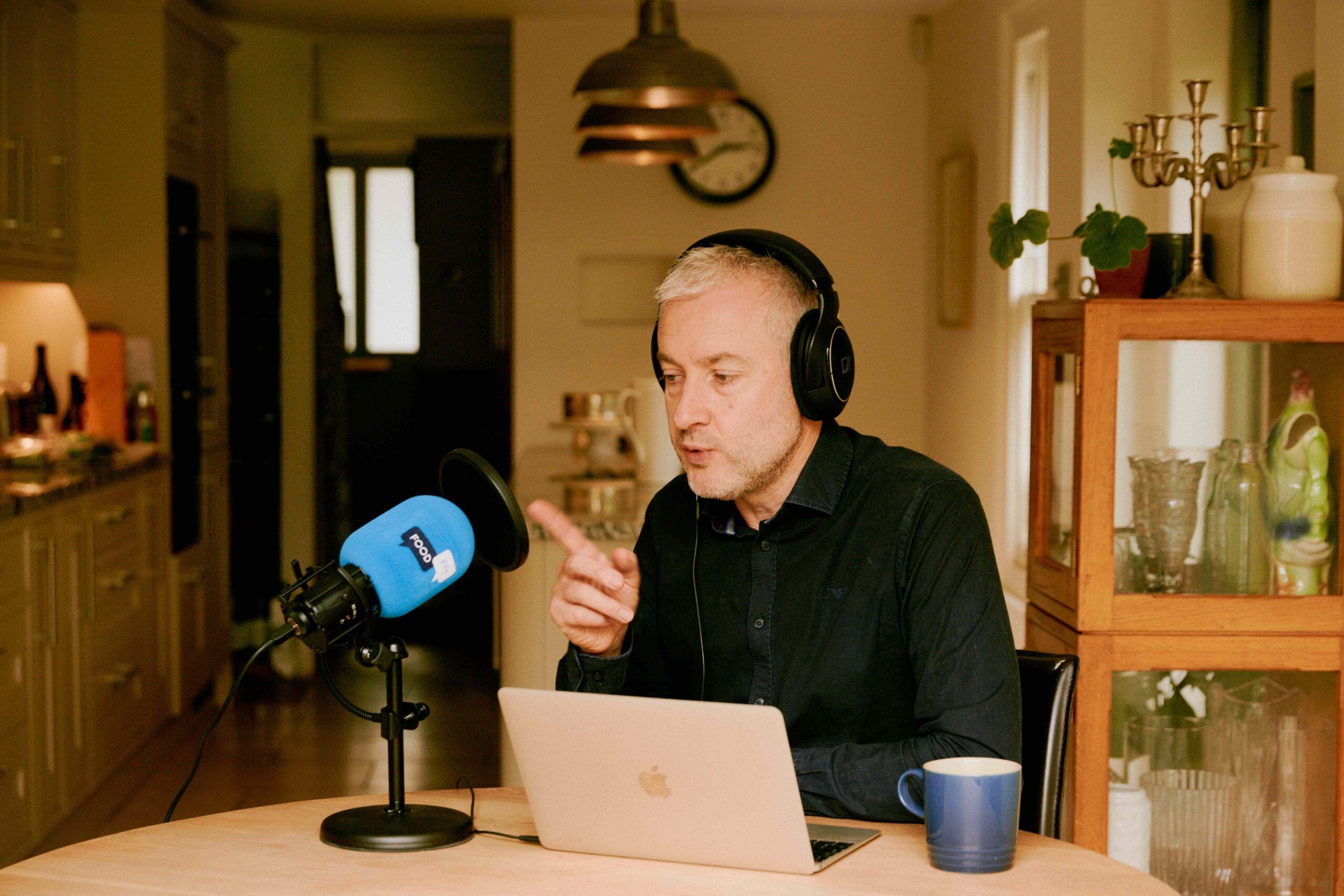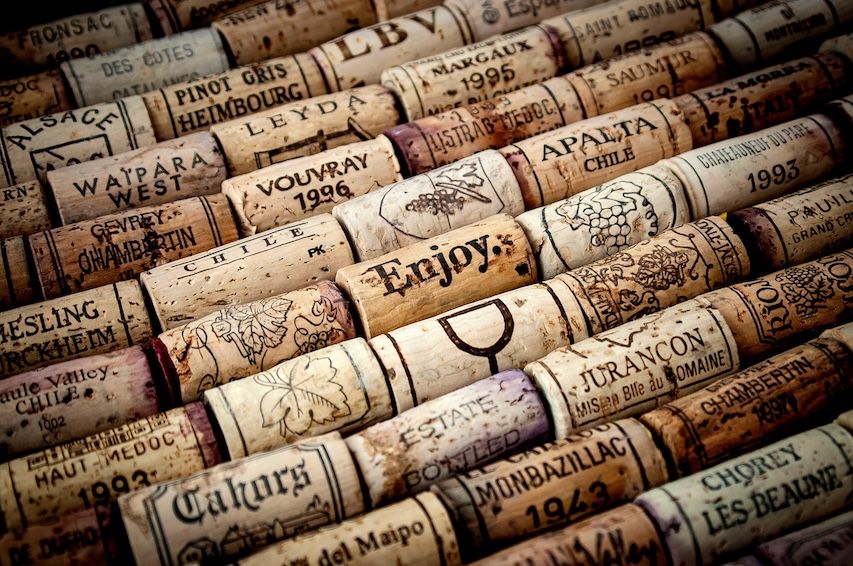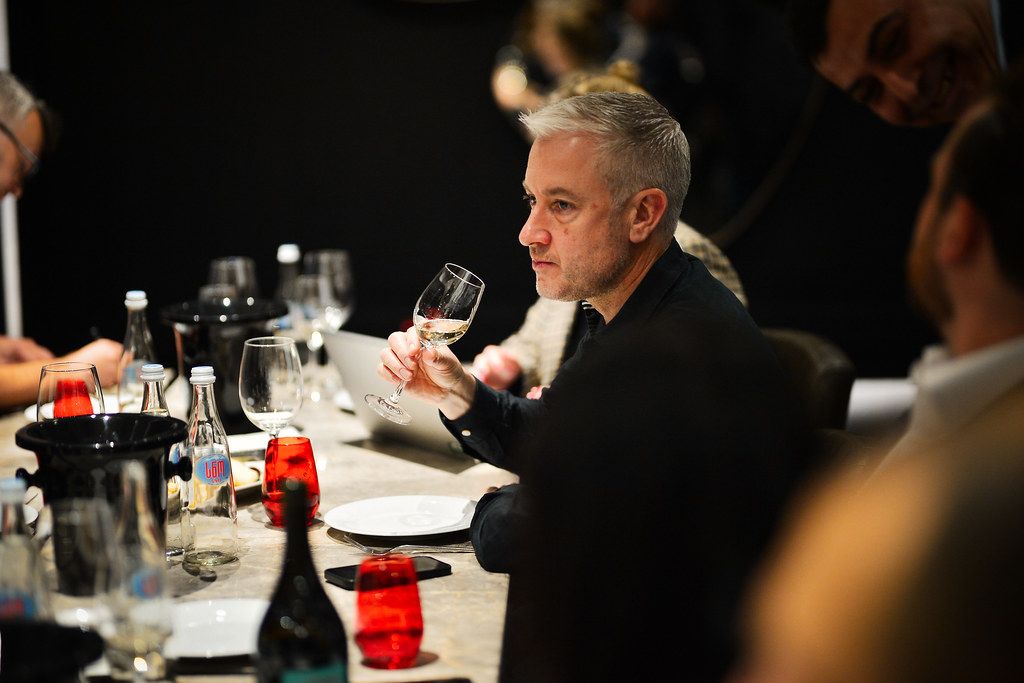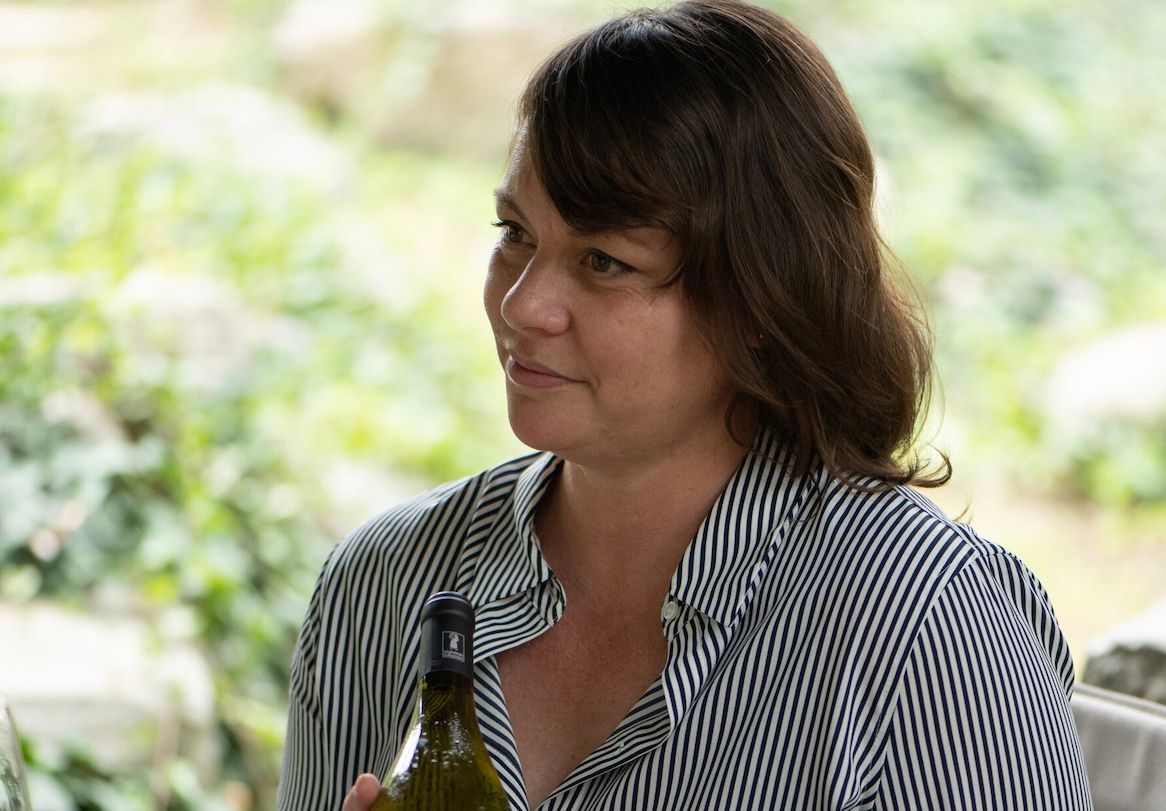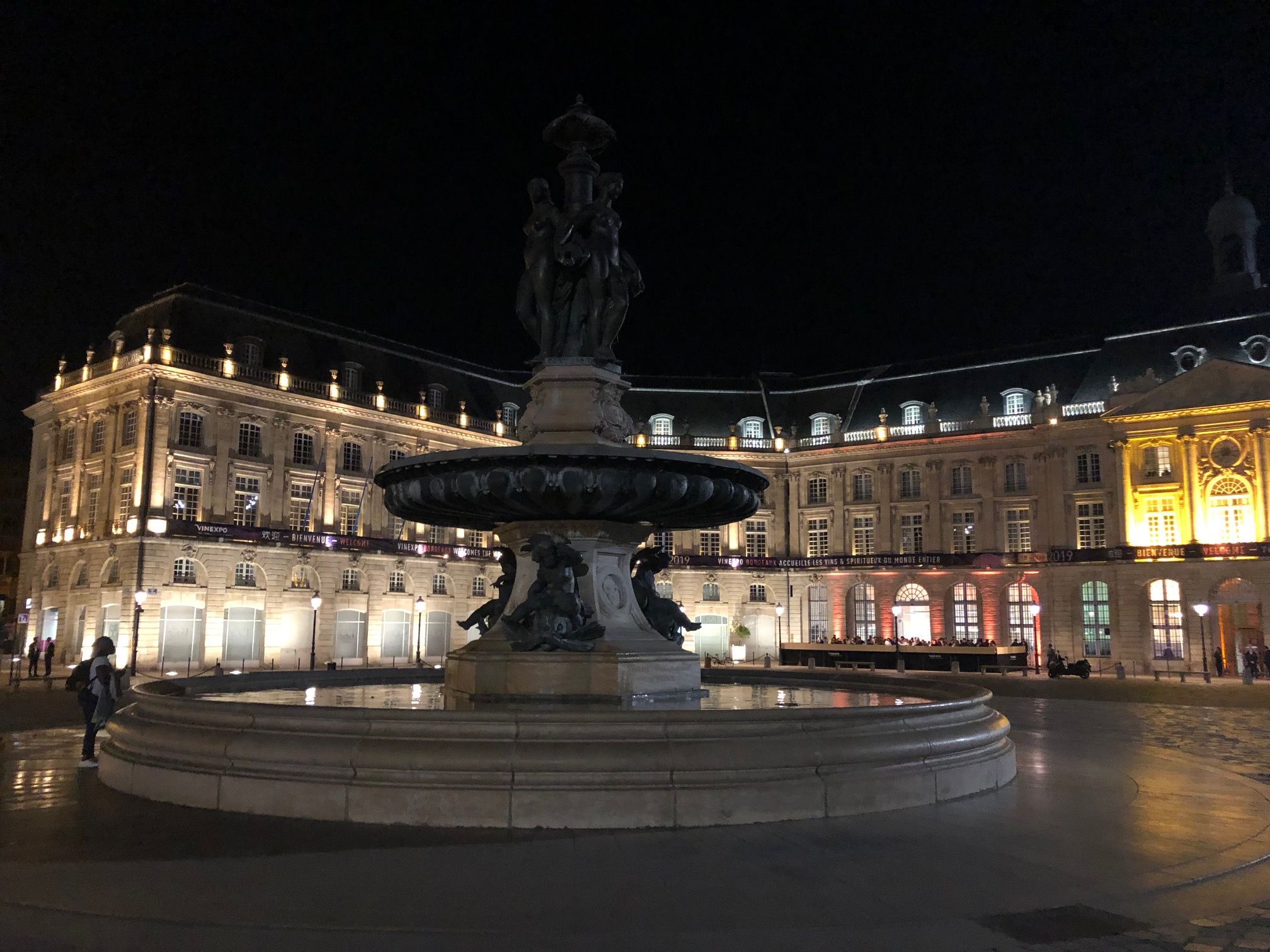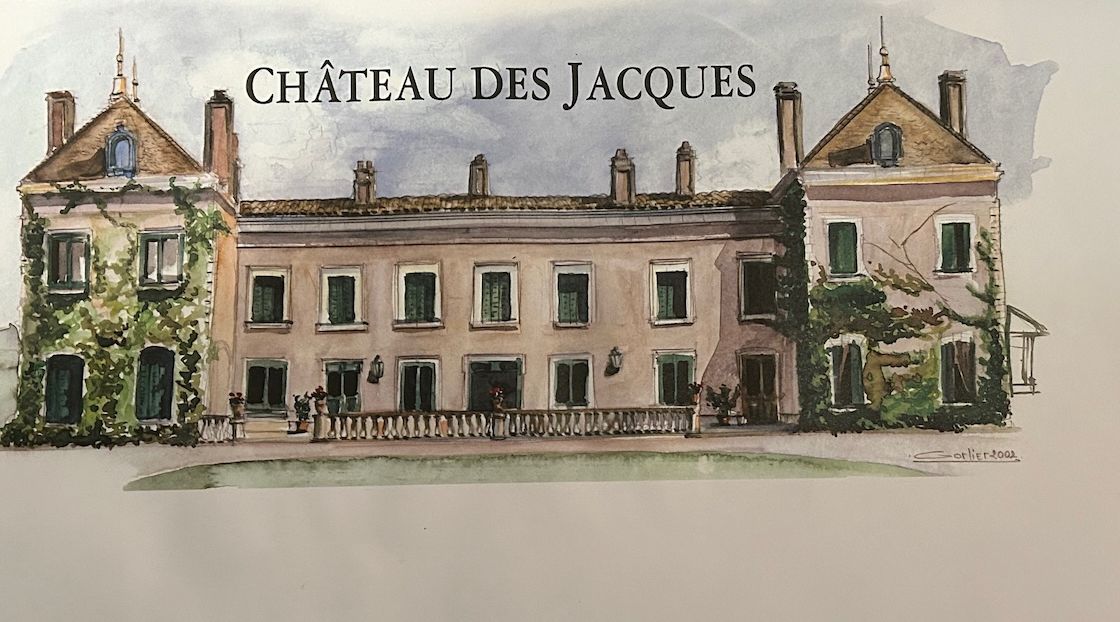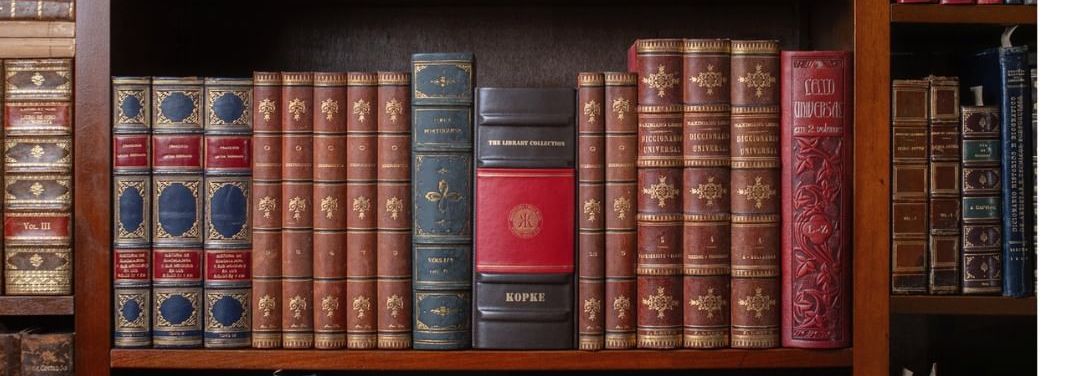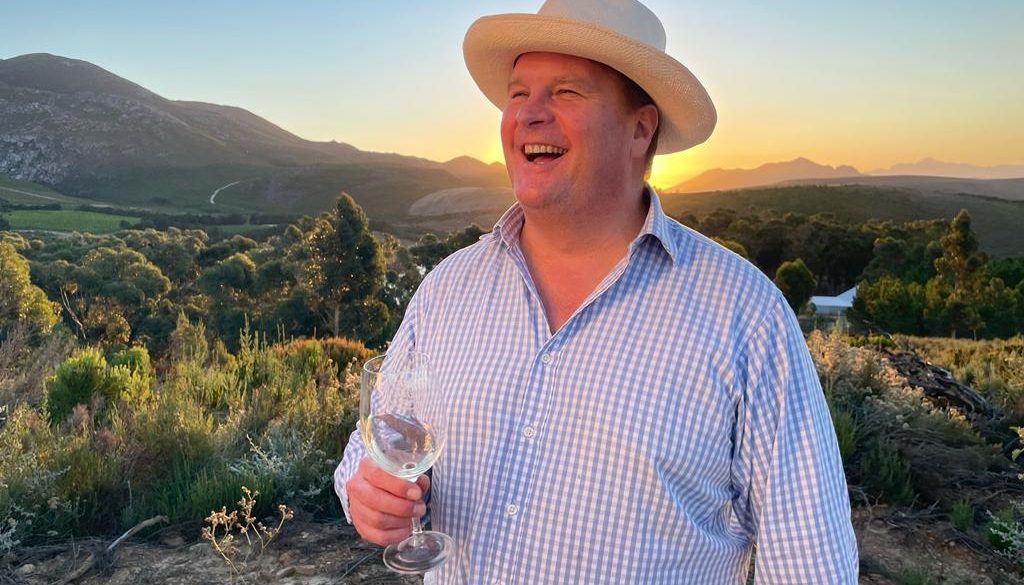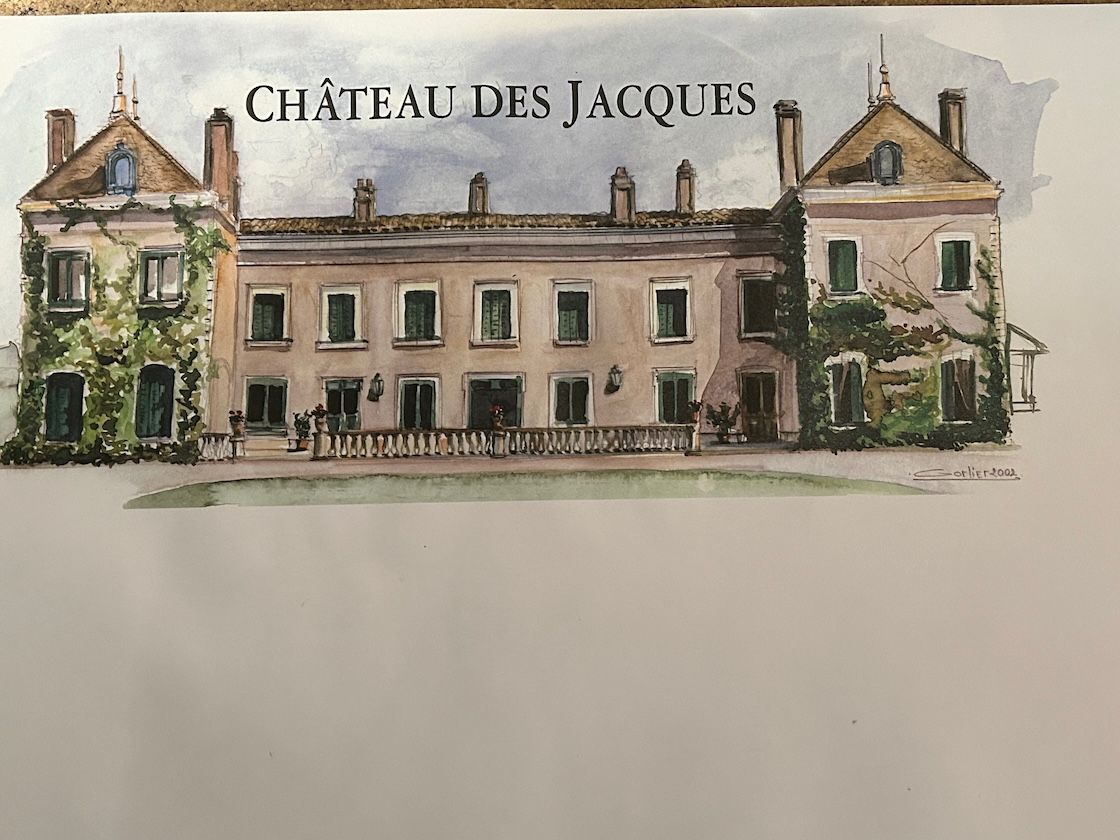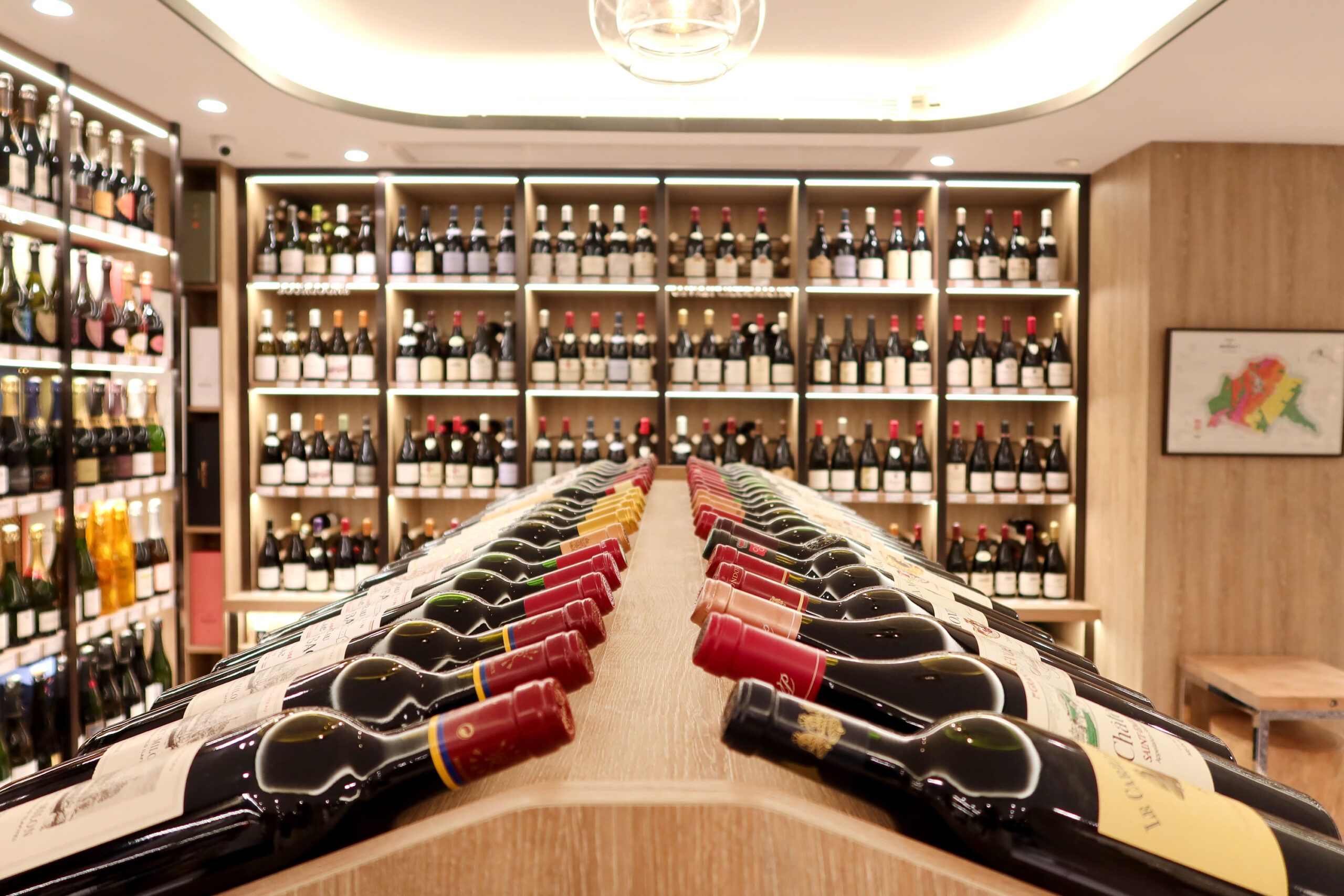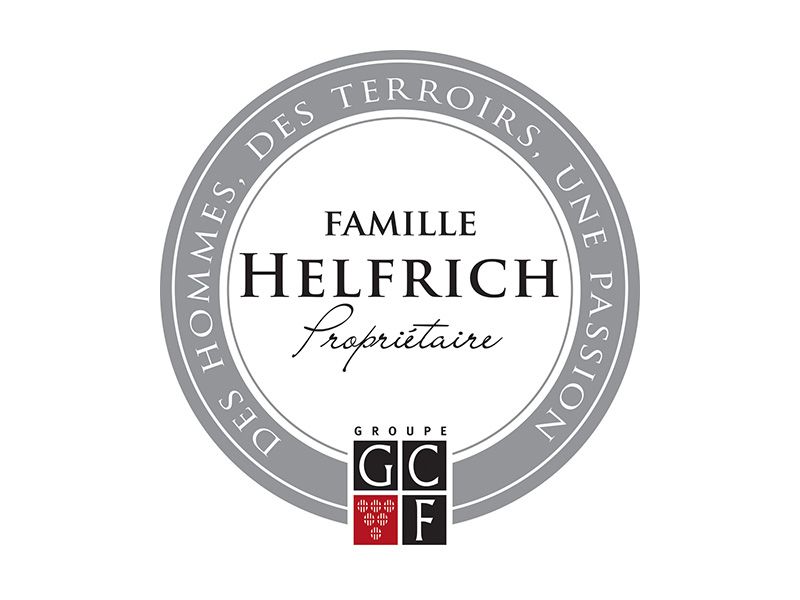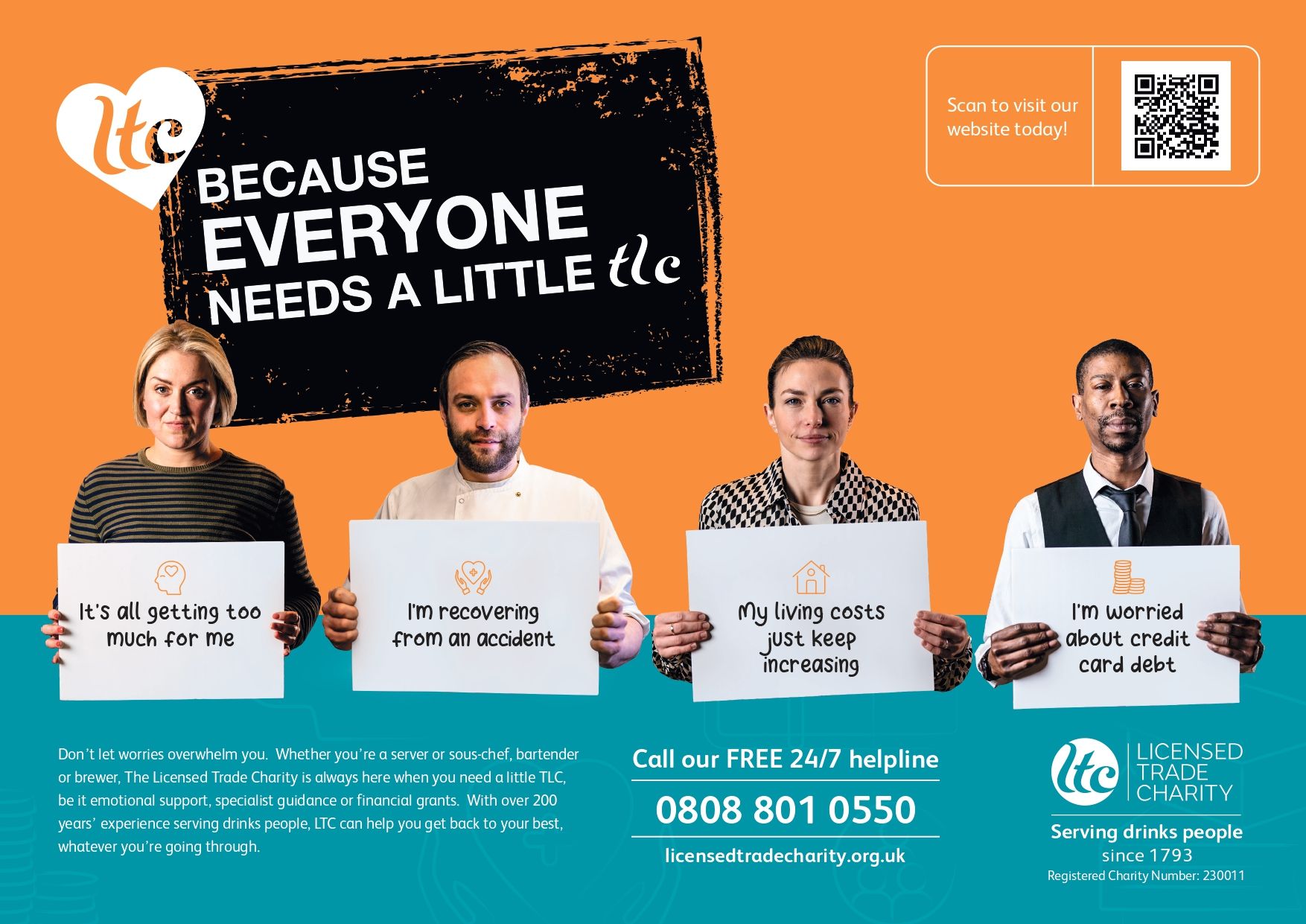The Drinking Hour’s David Kermode reflects on his century of episodes by analysing what makes a successful drinks podcast.
You are up to a 100 episodes of The Drinking Hour on Food FM. Congratulations – you must be pleased to reach such a milestone?
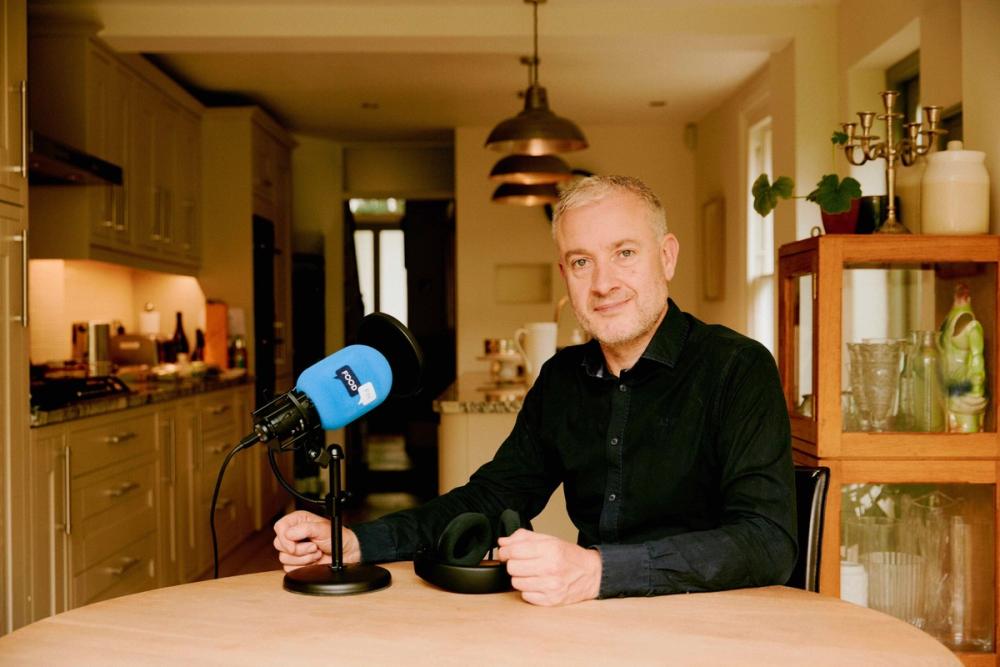
David Kermode is recording his 100th episode of The Drinking Hour on Food FM, in partnership with The Buyer and IWSC. Picture Henry Kenyon
I am chuffed, yes. When we started, it was commissioned for 12 episodes and – to be honest – I wasn’t sure we would do more than that. Podcasts come and go, they entail a lot more work than people imagine. It’s easy to say “right, we need a podcast” but making it happen, consistently, is a different ball game: you need a bit of investment and, ideally, a sponsor who sees the value that can be created. I count myself as very fortunate to have had the support of both Food FM and the IWSC, and media partner The Buyer, to get this far.
What do you put the success and interest in the podcast down to?
I try to keep it real, to have a tone of voice, to focus on a single person listening. In my mind, that person loves drinks, but doesn’t live and breathe the drinks world and nor should they need to and to try to ask the questions that particular person would ask and, most important of all, to have great guests. They don’t have to be big names, they just need to have something interesting to say.
What was the original concept for the podcast and how did it come about?
The podcast came about because the boss of the IWSC, Christelle Guibert, had listened to me doing one of my BBC radio wine slots. She had a conversation with Food FM co-founder, Karen Morris, who revealed plans to launch the station, so she naturally said “are you having a drinks programme?You need David…” and that was that.Christelle is always looking at ways to deliver added value for the wines and spirits that win medals and she saw an opportunity for sponsorship to enhance the offer the IWSC gives its medal winners.
Have you stuck to your original concept or have you adapted it?
Yes, most definitely. Like any launch, there are things that you need to change and there are changes that come naturally. Across 25 years, I ran radio and then TV shows, for the BBC and commercial broadcasters including Channel 5 and ITV, and I cannot think of a single launch that didn’t see some significant changes subsequently.Sometimes these changes were the result of what you might call ‘an executive level panic’, other times, it was tweaking around the edges of something that had gone really well.
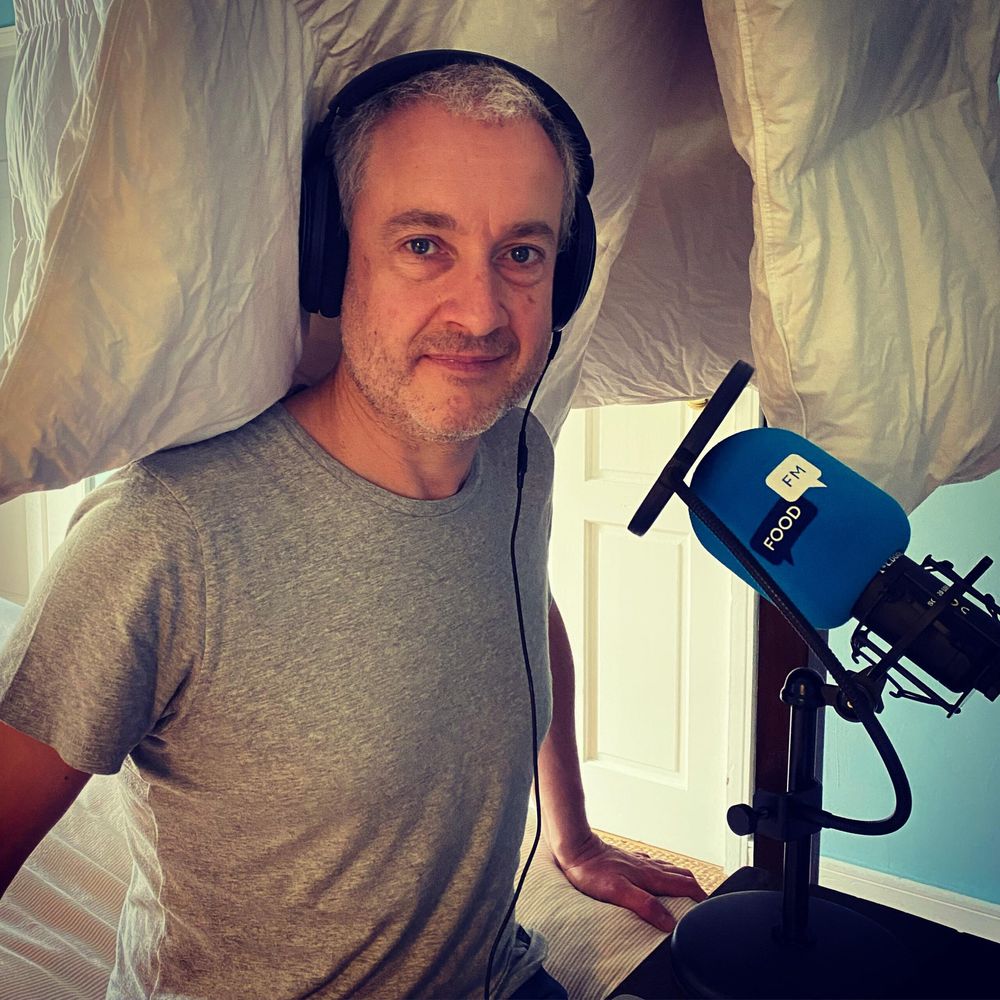
Ever the professsional: David Kermode has come up with a unique way of sound proofing his home to help with the recording of his podcast
When I listen back to the early episodes of the Drinking Hour, I was trying to do what I knew best, so I was trying to create a very produced radio show, with three different items, openers, menus, teases, the works. Podcasts aren’t really like that. They are much more intimate, much less ‘produced’.So these days, most episodes, I feature one person, or one theme and I just let it breathe.Thankfully, we have achieved this evolution without the aforementioned panic.
What have been the big learning points you have taken on board?
Just that really. To choose the right guest, research the chat properly and then, just to let it breathe and take the twists and turns that a conversation naturally does. I like to think it is an easy listen, but if I listen back to very early episodes, I was a bit shouty in the opening sequence, which I think stems from my news career and a desire to deliver something akin to ‘headlines’.
I try to dial it down a bit now, though someone recently told me I had a very “soothing” delivery, which I took to mean that I was probably sending them to sleep on their smart speaker of a night!I don’t strive for adversarial content, but, by the same token, I am a journalist, it runs through me like a stick of rock, so I like to think I will ask a few searching questions along the way, but the most important thing in an interview is just to listen.
What have been the hardest things/ challenges in keeping a podcast fresh?
I have a dog and I liken a podcast to having a pet. It is a responsibility. It needs feeding, nurturing etc. We deliver the Drinking Hour once a week, all year round. So juggling it with my press trips, writing commitments, other broadcasting and, of course, just having a life, can be challenging. Then there’s the need to have a roster of great guests – I feasted on some big names early on – but I have to say I keep alighting on potentially brilliant guests that I can invite on, so we have never missed a week.
What advice and research have you done into what makes a successful podcast?
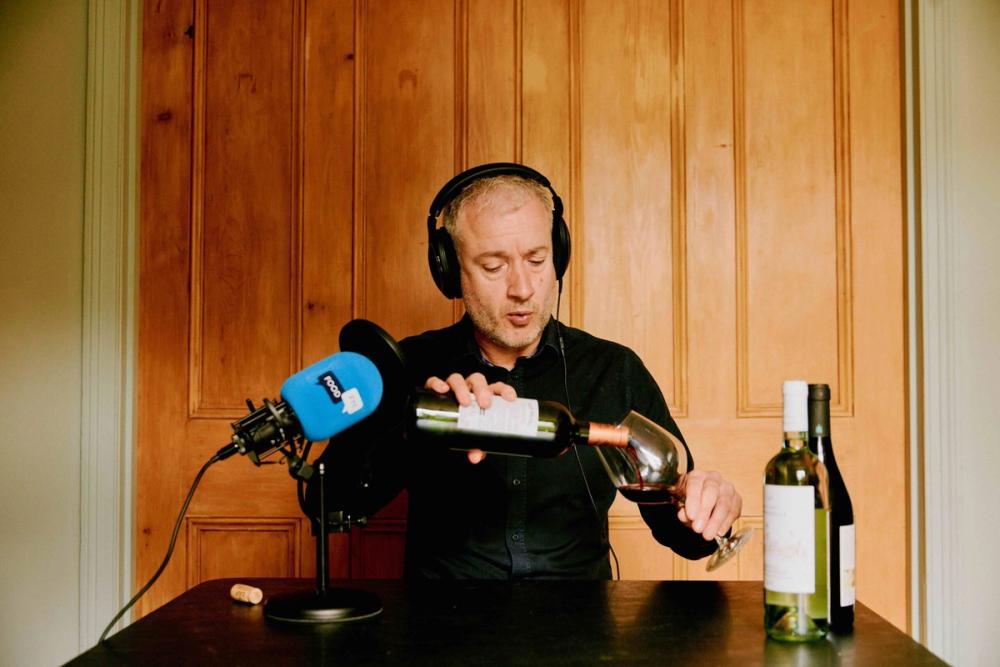
David Kermode also recommends wines on The Drinking Hour as well as talking to a wide variety of winemakers and producers. Picture Henry Kenyon
I can claim to have launched one of the BBC’s first podcasts about 15 years ago: a short news summary from BBC Breakfast, called the ‘Breakfast Takeway’, when I edited BBC Breakfast. I thought it would last about five minutes and that podcasts would go the way of Radio Rentals, which is presumably why my career in strategy never took off. Most of what I do with the Drinking Hour is actually instinctive. You can send yourself mad looking at too much data.
What advice would you give to someone looking to start their own podcast?
Have a simple idea, don’t complicate it, have a supportive sponsor if you possibly can, have a brilliant technical sidekick (unless you are really good at that stuff already), do not underestimate the amount of work involved, then just go for it.
What podcasts do you listen to – both in drinks and non drinks?
I have been enjoying The News Agents, which had an unremarkable (though very high profile) start, but has really grown, as I knew it would with the talent they enlisted. Politics works really well in podcast form, so Brexitcast, Newscast etc. Alistair Campbell and Rory Stewart are a really good listen too. Then I love some of the Radio 4 sequence shows turned into podcast, like The Reunion.Wine for Normal People is really good, the Three Drinkers is good fun, and I am looking forward to listening to Sophia Longhi and Ben Franks too as I have seen them talk about their new podcast.
Biggest stand out moments so far for you in doing the podcast?
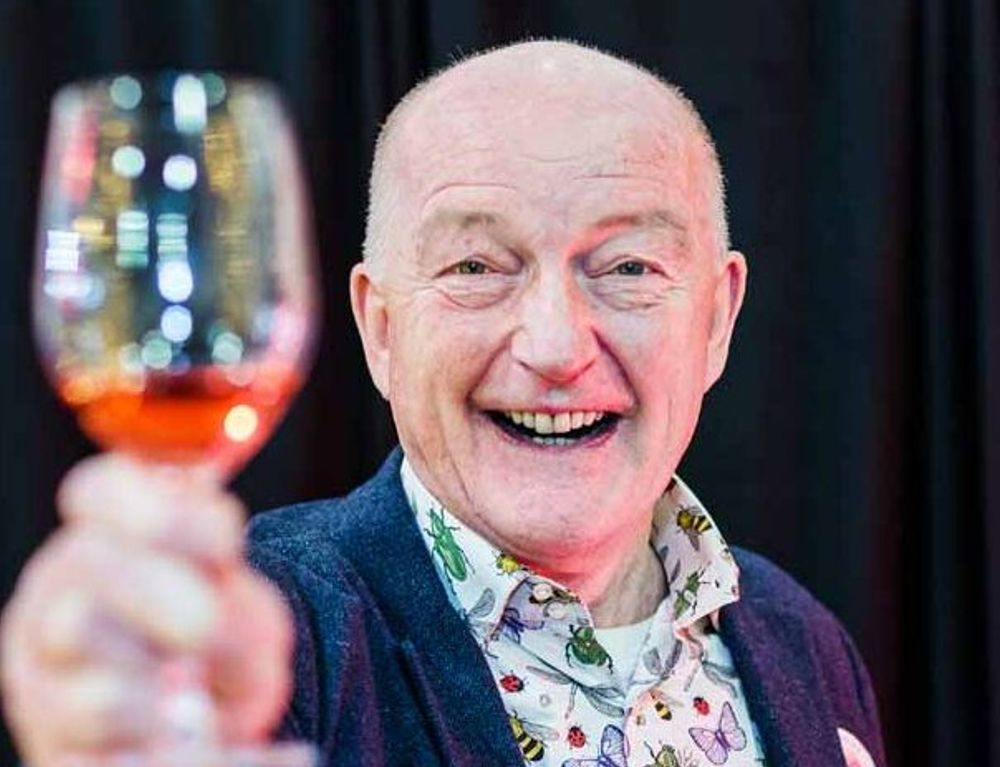
Oz Clarke was one of David Kermode’s stand out guests during his first 100 episodes along with fellow wine luminaries Jancis Robinson MW and Hugh Johnson
I have just had some really lovely, genuinely enlightening conversations, rather than moments of revelation. Highlights have been asking Jancis Robinson MW whether Nick [Lander] gets offered the wine list when they go out, hearing how Peter Gago goes about blending The Grange, asking Oz Clark about the early days of English wine and hearing how one of its current stars, Dermot Sugrue came from humble beginnings to what he is today.
I was dead chuffed when, after I had interviewed Hugh Johnson for almost an hour, he turned to me and said “well done old chap, you got a lot out of me”. And then there was Sacha Lichine. I was interviewed or The Buyer when we launched and you asked me for my ‘wish list/dream guests’. One of the names I mentioned was Sacha Lichine, whom I had never met. He read the piece in The Buyer and his people got in touch to say “he’ll do it”. He was a wonderful chat.
Any guests that are still on your wish list?
Well, based on what happened last time you asked me that question: Barack Obama, Madonna and Lord Lucan, but, in truth, I have already hoovered up some of the great names with whom I wanted to chat. However, I’m keen to speak to some of the current big name chefs to broaden the horizon a little from drinks to food-with-drinks, so that’s a current focus. I also keep meaning to invite the Master Distiller of Beefeater, Desmond Payne, on as well, as I chatted with him at an IWSC judging session a year or so ago and he was just wonderful.
How do you make money from the podcast and how can people and wine businesses get involved?
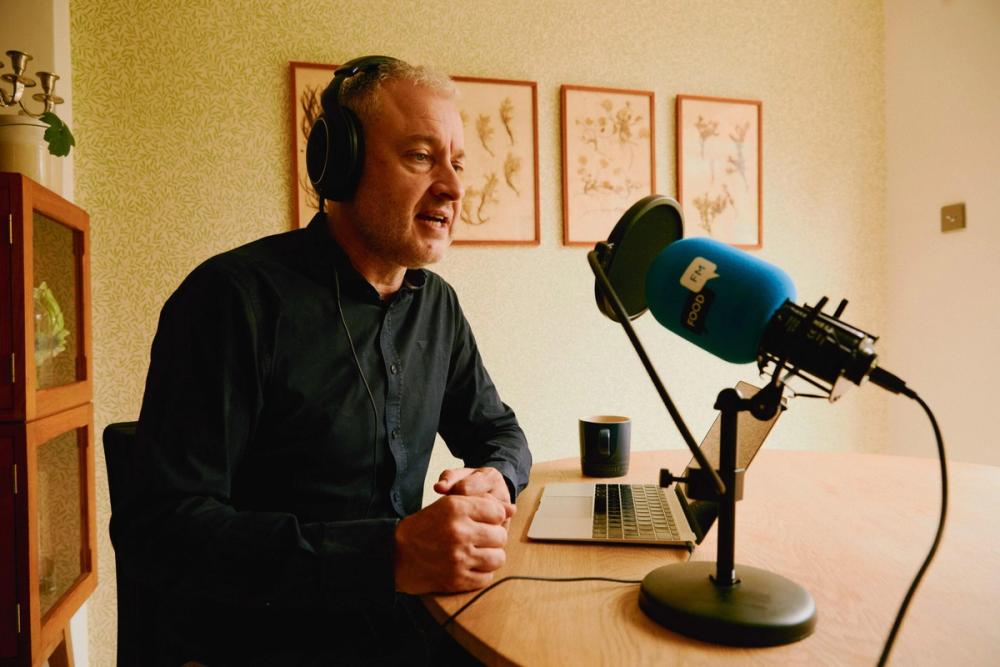
David Kermode’s experience as a broadcaster and producer at the BBC and ITV has helped him slip comfortably behind a microphone. Picture Henry Kenyon
We are very fortunate to have had a headline sponsor in the IWSC and, from episode 100, we will be carrying the beautiful Club Oenologique brand, but there are always one-off opportunities to partner up, where there’s the potential for a great guest that ties in with a brand’s messaging, so getting in touch via Food FM is the best bet. I am the producer as well as the presenter so I get involved in all the week-to-week editorial decisions, but I am definitely not a salesman. Horses for courses and all that…
What next for the Drinking Hour – what plans do you have to build the brand and profile?
We’re having a ‘refresh’ for episode 100 to celebrate Club Oenologique becoming the sponsor (though we will still feature IWSC medal winners each week), with new branding, voiceovers and music. After that, it’s just about finding more great guests, with stories to tell and hopefully some drinks inspiration.
- The Drinking Hour with David Kermode in partnership with Club Oenologique and The Buyer is released weekly at Food FM and all the usual podcast platforms, including Spotify and I Tunes.
- The 10oth episode will feature Dr Rachel Barrie, First Lady of Scotch, and first female to be inducted into the Scotch Whisky Hall of Fame.
